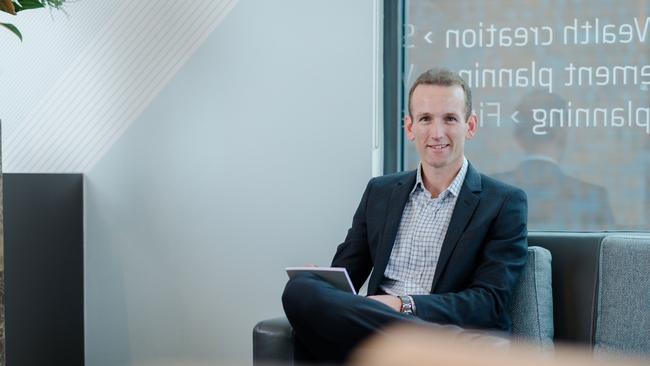Escape the cash trap with these modern money alternatives
Sick of losing money on your bank deposits? Financial specialists outline some options for better, but often riskier, returns.
The numbers don’t lie: stashing cash in a bank account is sending your wealth backwards.
Almost all Australian deposits are paying below 1 per cent interest, while annual inflation in Australia currently sits at 3 per cent. So, in real terms, you’re earning minus-2 per cent on your cash savings.
There are modern alternatives to cash, money experts say, but they generally mean you’ll have to accept extra risk.
The sharemarket has traditionally been a place to invest money for higher returns, and cash’s poor performance is a key reason why stocks have been trading near record highs.
Share dividends average almost 4 per cent, and MBA Financial Strategists director Darren James says a long-term stock portfolio may be less risky than consistently losing your purchasing power by holding cash, but it all depends on what risk levels people are prepared to accept.
“Are you any worse off over five years if you put it into shares?” he says.
DEBT REPAYMENT
The only risk-free alternative to cash in the bank is using the money to pay off your loans faster.
“We see a lot of people with money sitting in savings accounts and not putting it into repayment of debt,” James says.
The higher the interest rate – think credit cards and personal loans – the higher the effective return on your money.

MORTGAGE OFFSET ACCOUNTS
CreationWealth senior financial adviser Andrew Zbik says an offset account is “the new risk-free return”.
Instead of a deposit account, your money sits against the home loan, reducing the principal, lowering the interest cost and wiping out the debt faster.
“If you are offsetting a home loan at 2.9 or 3.1 per cent, any investments have to get above that – after fees – to make them worthwhile,” Zbik says.
OTHER PEOPLE’S MONEY
For decades a popular conservative investment has been fixed interest, often through funds holding government and corporate bonds.
They are linked to bond markets, and their structure means that when interest rates rise the capital value of the bonds can fall.
Zbik prefers the new peer-to-peer lending sector, and often uses the La Trobe Australian Credit Fund that is currently paying about 4.15 per cent. Peer-to-peer lenders marry investors’ cash with borrowers’ requests through online platforms, removing the banks from the equation.
“For a lot of my retail clients I have found it (La Trobe) to be good – it’s localised debt and it’s secured,” Zbik says. “For more sophisticated clients I have gone straight to peer-to-peer lending.”
EXCHANGE TRADED FUNDS
ETFs are a buzzword among investors, particularly beginners, but remember that they are simply a structure that holds a variety of other assets.
You can own a cash ETF but it may only pay just 0.4 per cent a year, or you can buy an aggressive shares ETF that may have earned 20 per cent in the past 12 months but could potentially fall by more than that in 2022.
PROPERTY PIECES
A few thousand bucks sitting in a savings account won’t buy you an investment property, buy there are ways to invest in small slices of the real estate market.
The most common is real estate investment trusts, which are listed on stockmarkets and owns residential and commercial properties including shopping malls, office towers and warehouses.
People can also buy fractions of individual investment properties through platforms such as BrickX and DomaCom. But remember that property prices fall as well as rise.
CRYPTOCURRENCY
Just because it has “currency” in it’s name doesn’t mean it’s anything like a traditional currency.
Bitcoin, Ethereum and other cryptocurrencies are possibly the most volatile asset class on the planet. This year alone bitcoin doubled in price, then halved, then doubled again in recent weeks.
MBA’s James says bitcoin is “definitely not” a cash replacement.
“It’s not something we would be suggesting because it is volatile and it has no income – it’s a growth play,” he says.
“What people are now realising is that it’s taxable. If you are trading in and out of various currencies you are liable for tax on it.”






To join the conversation, please log in. Don't have an account? Register
Join the conversation, you are commenting as Logout